Recently a friend of mine and I went to Vienna to attend the first ever VIECC, the Vienna Comic Con. Months before we were already super hyped from all the amazing constumes and cosplay that we had seen online… hoping that people in Europe would be as impressive as the American cosplayers and comic fans.
Sooner (my friend) or later (me) we had decided on our costumes: She would dress up as elf and as Lady Stoneheart of Game of Thrones, and I would try to portrait the tenth Doctor on Doctor Who (my and everyone elses favourite 😛 ) Since I couldn’t find a suit that suited me I decided to go as a female version of the Doctor and wear a skirt and no wig. I also bought a beige coat on something like ebay, which, just like any suit I tried, didn’t fit, but as I wasn’t going to button it up, it didn’t really matter.
VIECC took place over a weekend and although it was their first go at organising such an event, they did pretty well. Apart from the host of certain panels and competitions (seriously, how did he get that job? Even I could have done it better without preparation. Not even lying. It was cringeworthy.) I enjoyed every panel I went to and they had even invited some people that are known to the puplic!
I thought I would give you guys an impression of our weekend with lots of pictures and small anecdotes:
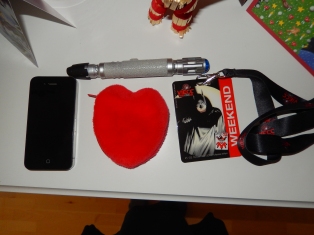 Preparation: to be the Doctor you need: your best friend, aka a Sonic Screwdriver, a phone with signal everywhere/when in the universe (with roaming fees though), a second heart (for my money) and a psychic paper (in this case showing an entrance ticket to the Comic Con)
Preparation: to be the Doctor you need: your best friend, aka a Sonic Screwdriver, a phone with signal everywhere/when in the universe (with roaming fees though), a second heart (for my money) and a psychic paper (in this case showing an entrance ticket to the Comic Con)
Stalls with fluffy, bright, dark, naked things to sell

Deadpool was quite popular this year

An impressive Tinkerbell/Heisenberg costume

My friend the elf and the Queen from Snow White and the Huntsman

Who knows who he is? Hint here
Sisters Thor and Loki (top left), Gadget from Chip ‘n Dale:Rescue Rangers (top right; dt: Trixi von Chip und Chap: Ritter des Rechts), Padme and a Jawa (mid left), Sims (bottom left) and Astrid Hofferson from How to Train Your Dragon (bottom right)

Our most favourite (more like: scaring for life) crotch area (Labyrinth)
Elf with scary Orc, Elf with Dean Winchester (Supernatural), Elf with Bane (Batman)

So this is how the series is going to end: Lady Stoneheart on the Iron Throne
Max & Caroline from 2 Broke Girls (top left), Batman and Robin (top mid), Mad Hatter and the Joker (top right), Transformers (bottom left) and Mario and Luigi (bottom right)
Little R2D2 (Star Wars), Queen of Hearts (Alice in Wonderland), elf with probalby someone from Got (but I honestly have no clue) and the most evil Disney characters (left to right)
And now: Ladies and Gentlemen! I present the results of my mission to get a picture with all Doctor Who characters I could find. I couldn’t take a picture with all of them, but there are a few with multiple TARDIS, two other tenth Doctors, lots of eleventh Doctors, one twelfth Doctor, Rose, and Madame Vastra and Jenny:
Last but not least: my friend and me on the second day (sorry for potato quality):

To see some other pictures check out See for yourselves…
I hope you enjoyed our little trip down nerd lane! 😀









































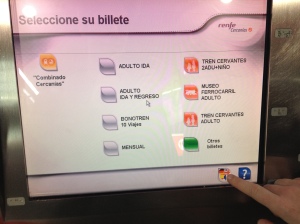
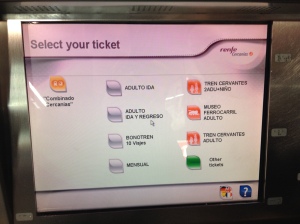

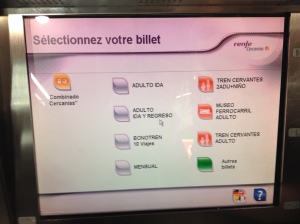















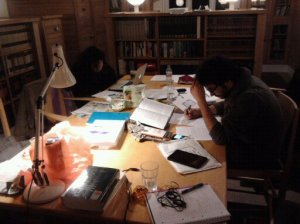
 Lemme tell you a story: I did so once to elaborate on the way our professor tried to use statistics to assess something. Neither he nor I are statisticians. So when I pointed out that something appeared wrong to me in the lecture, although I couldn’t pinpoint what exactly, he shut me down and told me that everything makes sense. (BTW: he is the type of professor who wants you to criticise him and argue with him; however, when you do, he can’t deal with it well and tells you in front of the class that you have been wrong because you haven’t considered X,Y. He loves being right.) I went back home, did research and with the help of the internet and my PR, I sent a long email explaining my thoughts and problems with his approach. He loved to have someone who took his subject this serious and even though he tried to prove me wrong in his next few mails, I persisted that I was right (risky, I know). It turned out that in fact, I was telling the truth, but even if I had been wrong it wouldn’t have mattered: I showed interest. This professor has called me his favourite student since then. He enjoyed having a critical discussion with me and now he calls me all those wonderful adjectives praising my intelligence, intellect, wit and whatnot. It is a bit embarrassing to be honest as he does so in front of the entire class, but I can’t deny that it has been so great for me since then. He knows my name, knows what I am capable of, is willing to bend the rules for me a bit further than usual… and you can have that too! 🙂
Lemme tell you a story: I did so once to elaborate on the way our professor tried to use statistics to assess something. Neither he nor I are statisticians. So when I pointed out that something appeared wrong to me in the lecture, although I couldn’t pinpoint what exactly, he shut me down and told me that everything makes sense. (BTW: he is the type of professor who wants you to criticise him and argue with him; however, when you do, he can’t deal with it well and tells you in front of the class that you have been wrong because you haven’t considered X,Y. He loves being right.) I went back home, did research and with the help of the internet and my PR, I sent a long email explaining my thoughts and problems with his approach. He loved to have someone who took his subject this serious and even though he tried to prove me wrong in his next few mails, I persisted that I was right (risky, I know). It turned out that in fact, I was telling the truth, but even if I had been wrong it wouldn’t have mattered: I showed interest. This professor has called me his favourite student since then. He enjoyed having a critical discussion with me and now he calls me all those wonderful adjectives praising my intelligence, intellect, wit and whatnot. It is a bit embarrassing to be honest as he does so in front of the entire class, but I can’t deny that it has been so great for me since then. He knows my name, knows what I am capable of, is willing to bend the rules for me a bit further than usual… and you can have that too! 🙂